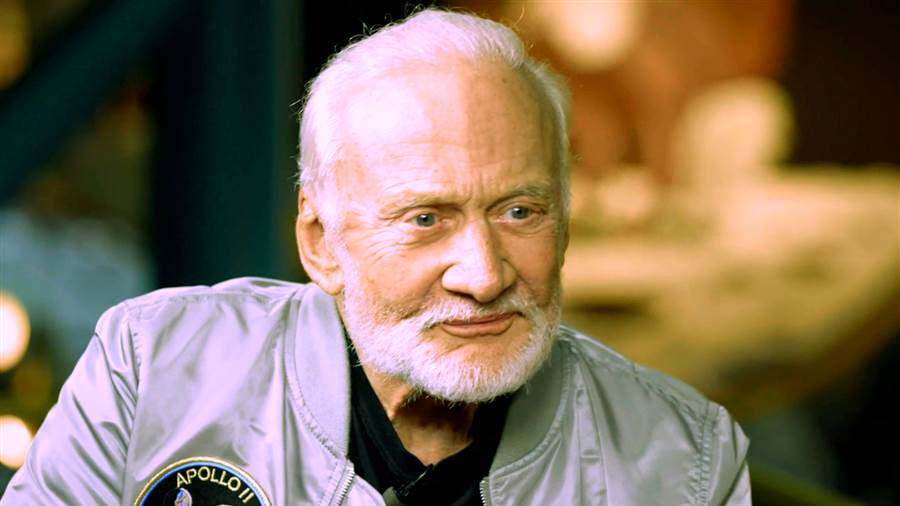In an emotional revelation that has stunned scientists, historians, and fans of space exploration alike, Buzz Aldrin, the legendary Apollo 11 astronaut, broke down in tears during a recent interview — declaring with trembling emotion, “The Moon is NOT what you think!” His unexpected confession has reignited worldwide fascination with the lunar surface he once walked upon, hinting that the reality of humanity’s first steps beyond Earth may be far more profound — and unsettling — than anyone imagined.

Now 95, Aldrin revisited the memories of that fateful mission in 1969 that made him the second man to walk on the Moon. Yet, instead of triumph and nostalgia, his words carried a tone of awe mixed with sorrow. “It isn’t just rock and dust,” he said softly. “It’s reflection — of who we are, and what we’ve forgotten.” His voice cracked as he described the overwhelming stillness of the lunar landscape, a silence so absolute that it seemed to swallow his very thoughts.
“The silence wasn’t peaceful,” Aldrin revealed. “It was… confronting. Like standing on the edge of everything that ever existed and realizing how small we truly are.” He went on to describe gazing at Earth — a fragile blue sphere suspended in black infinity — and feeling an indescribable loneliness that haunted him long after he returned home. “We left footprints on the Moon,” he whispered, “but a part of me never came back.”
Those who witnessed the interview said Aldrin’s tears were not merely nostalgia — they were the visible cracks in a man who has spent half a century grappling with what he saw. His words have sent ripples through the scientific and philosophical communities, stirring speculation about whether his comments hint at deeper truths hidden beneath the Moon’s cold surface — or within the human psyche itself.

As artificial intelligence and modern robotics prepare to unlock new secrets buried in lunar soil, Aldrin’s testimony serves as a sobering reminder that space exploration is not only a technical endeavor but a spiritual one. “We were farther from home than any human had ever been,” he said. “We carried humanity with us, but we also saw how easily it could all vanish.”
His statement — “The Moon is not what you think” — has already become a rallying cry for a new generation of explorers and thinkers who view space not merely as a frontier of science, but as a mirror to our deepest existential questions.

For Aldrin, the Moon remains more than a destination. It is a haunting symbol — of courage, fragility, and the infinite longing that drives humanity to reach beyond itself. “The Moon,” he concluded, “doesn’t just reflect sunlight. It reflects us — all our dreams, all our fears, all our unanswered questions.”
And as he wiped away tears, the world was reminded: some discoveries don’t just change what we know — they change who we are.




